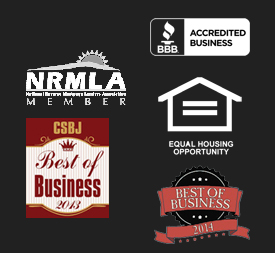13 Dangers of Caregiver Denial
Denial is a normal human emotion, especially with symptoms as heartbreaking as dementia or Alzheimer’s, as no one wants to confront the disease for which there is currently no cure. But there are risks to caregiver denial.
Dangers that go along with caregiver denial are two-fold. Not only is your loved one at risk; but also you, the caregiver, is at risk. Learn more about the 13 dangers of caregiver denial and get some survival tips from acclaimed author and caregiver, Elizabeth Lonseth.
13 Dangers of Caregiver Denial
It doesn’t matter how many times you’ve been through the caregiving experience. It never gets easy. But a little education helps, and there are definitely some good pointers to keep in mind. Elizabeth Lonseth, author of “A Gradual Disappearance” — a concise, intimate and sincere guide for people dealing with Alzheimer’s disease or dementia — is a seasoned caregiver who has watched not only both her parents be diagnosed with memory impairment, but also both her husband’s parents. Her fourth time around is still difficult, but at least she has some awareness to help guide her in the Alzheimer’s journey.
“I was in my 30s when my dad was diagnosed with dementia. I didn’t know how to deal with it and was in denial. Guilt was also a problem. Then, eventually, my husband’s parents were both diagnosed and my husband and I went through the myriad of emotions and caregiving challenges with them, as well. My mom’s Alzheimer’s diagnosis is the 4th time around. It’s still hard, but mom played a role in her choices as I was educated on what I needed to do and how to get things in order.”
Elizabeth has been asked to speak to many caregivers and senior care professionals who have been affected by Alzheimer’s and dementia. Denial was a key theme and problem she discovered from her audiences, so she decided to write a book about the dangers of denial, which comes out on October 14, 2015. This interview is a sneak peek at the gems of wisdom you can expect from her upcoming book, “The Dangers of Denial: Embracing the Challenges of Alzheimer’s and Dementia.”
7 Dangers of Denial for the Patient
“Denial is a tool. It protects us. But if we stay in denial, it becomes a problem… sometimes with dire consequences,” Elizabeth notes. “People try to hide their problems. But if both the patient and their loved ones ignore changes in behavior, even if they are subtle, this can lead to problems.” An Alzheimer’s or dementia patient only has a small window of being objective. If they can confront the problems they’re experiencing in a timely manner, they can participate in decisions that involve their care and finances.
Here are seven dangers that can occur that Alzheimer’s and dementia caregivers need to be cognizant of when caring for their aging loved one: (click here to read the full text on Senior Living blog)
1. They can get lost.
2. They can hurt themselves or others.
3. They can have a home accident.
4. They can suffer from poor nourishment.
5. They can cause an accident from driving.
6. They can overdose on medications.
7. They can become a victim of elder abuse.
6 Dangers of Denial for Family Members
Family members also suffer from denial that their loved ones have dementia and Alzheimer’s, according to Elizabeth. Having a realistic perspective about your loved one’s illness and his or her needs is crucial if you’re thinking about their wellbeing. But it can be hard for family members to accept that their parent, spouse or family member has changed. It’s even worse when both the elderly loved one with the problem and the family member is in denial:
“When loved ones and family members are both in denial, this presents a huge problem as it puts the sufferer at risk, not to mention, they can’t participate enough in the decision making for their care needs.”
Here are the six dangers of denial for family members that Elizabeth discusses:
1. Losing the chance to make special memories.
2. Forfeiting being the best advocate for your loved one.
3. Not getting legal papers in order.
4. Family conflict.
5. Loss of financial resources.
6. Stress involving illnesses and even the death of the caregiver before the patient passes away.
To read the complete text of this blog on Senior Living blog, click here.

